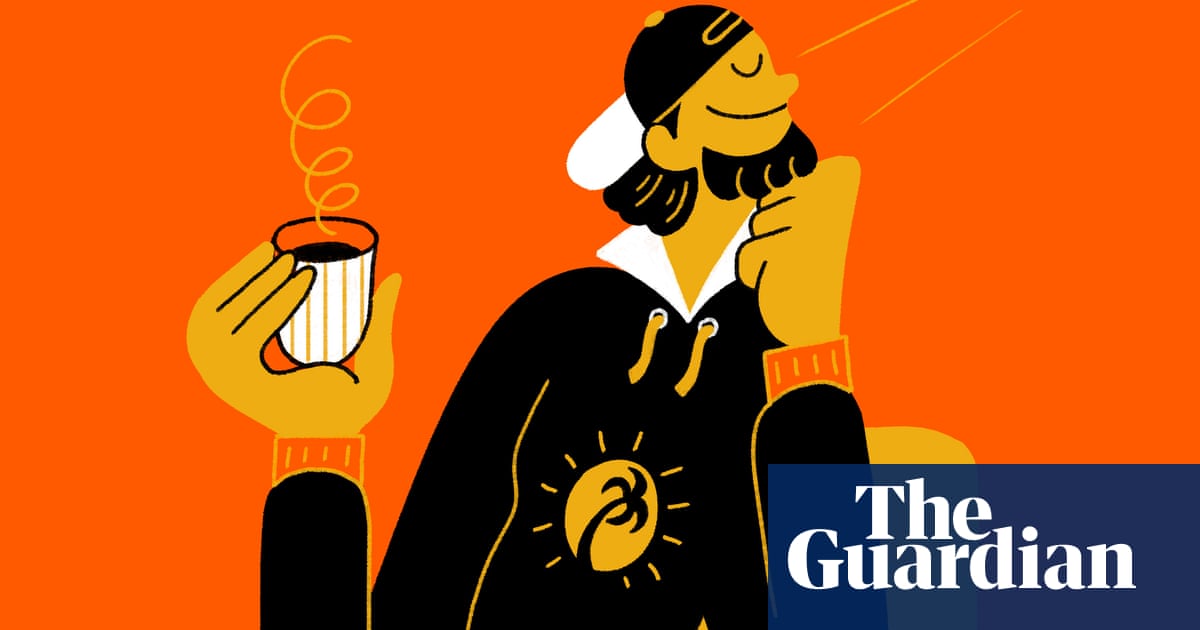
e were passing the turnoff for Norwich prison, near the diner where other children were always having birthday parties, when the car radio jolted me from a daydream. The music was wrong, the beat stilted and crackly. Even stranger were the half-spoken vocals, which sounded the way dads do when they think you’re not listening. Barely even a song, I thought, already half in love.
It would not have shocked me, even then, to learn that Let’s Push Things Forward would cement the Streets in the annals of British pop music. Why distrust mainstream tastes? Nearly everything I adored was wildly successful. Aged 10, I faced just one threat to the sanctity of art and she was sitting beside me in the driver’s seat.
Not long afterwards Mum confirmed my fears, imposing a ban on the Streets’ debut, Original Pirate Material, because: “It glamorises drugs.” She was in the living room, batting away cigarette smoke to turn down her Bob Marley CD. “Just wait ’til you’re 15.” Insofar as this was a debate, my position was compromised. Months earlier, Mum had found my stashed Tim Westwood rap compilation and scheduled a hearing over chess. I feigned an in-game trance as the walls of our flat shook to Juvenile’s Mamma Got Ass.
This time around, the goods were blacklisted before I even got to listen – pretty unfair. My desire grew legs and a demonic personality, smoked joints on the porch of my imagination. When a new single aired on a drive home, I wanted to teleport back so I could tape the dying moments. The debut single Has It Come to This? – overheard long ago and now summoned from my subconscious – made an entry in the personal singles chart I scribbled each weekend.
Fortunately for Mum, my Streets mania was increasingly confined to an after-school centre called Treehouse. I persuaded a loosely parented friend to pick up Weak Become Heroes and blast its rave chronicle from the kitchen stereo. Although the children Pritt-Sticking glitter on to cutout butterflies were insufficiently discerning, staffer Jonny, a cheery hippy and the fiddler in a local folk band, approached the hatch pretending to tell us off. Instead, he dazzled me with a sophisticated critique: that the Streets lacked “nuance” and Skinner’s “colloquialisms” were “gimmicky” – a verdict I pitifully derided before furiously consulting the dictionary.
His colleague Sam, the sort of wearied woman-of-the-people to whom children cling like a raft, became my unlikely ally. She even possessed the holy grail, Original Pirate Material on CD, and lent it to Jonny before our next salon. Although pleased to make converts, I privately resented their access, and it was this that prompted an outlandish proposal. Using a blank cassette, I ventured, Sam could record the album and hit pause on any explicit lyrics, thus creating a mum-proof radio edit. Genius, I thought. Miraculously, so did Sam.
That a grown woman would spend several evenings laboriously editing raps for a child (one whose mother may, for all anyone knew, be quietly filing for a restraining order) struck me, I am afraid to say, as perfectly natural. Not once did Sam reach for the ready-made excuses of adulthood, citing mysterious rules or the “haven’t got time” continuum. Her delivery the next week of that hand-labelled C90 condensed every Christmas of my life into an ecstasy of gratitude.
That night, Mum unfolded the chess board, fetched her judicial cushion and pressed play. Opener Turn the Page heralded a showdown, flinging open the gates to Skinner’s wonderland of the ordinary. To finally hear Has It Come to This? was like watching my own dreams in HD. I marvelled, then castled. Sam’s handiwork was exquisite; nary a suspect “bit of Benson” remained intact. Mum pushed pawns, oblivious to the coming-of-age drama in her opponent’s brain. Even with the tape’s telltale blank spots, it was all laid out: my initiation into hedonism, egomaniacal folly and – via weepy highlight It’s Too Late – the messy reality of love, of losing it all because you are too much yourself.
When Mum nodded her assent, I grabbed the tape, rushed to my room and opened the case like Pandora’s box. Picturing it now, I see future obsessions burst forth like Big Bang particles: from my Libertines tweens through to the sporadic lunacies of adulthood, those lost months after interviewing Björk, plundering eBay for extravagant tops. I am sure it all started here. The excitement also exonerated Mum, whose rule of law came to strike me as the defence strategy of a desperately young woman just winging it through single motherhood, patrolling every path astray.
In its physical form, the cassette lasted about 18 months, a respectable honeymoon. One morning I hit eject to find its black magnetic strip chewed up by the tape deck. After jabbing a pinkie into the reel and failing to spool it back, I thought: looks like a dead thing. As quickly as it struck, though, my grief passed. This violence had a fitting gravitas, I decided, cradling the plastic husk and its monstrous innards. Something of it was in my hands, and the rest was in a better place.












